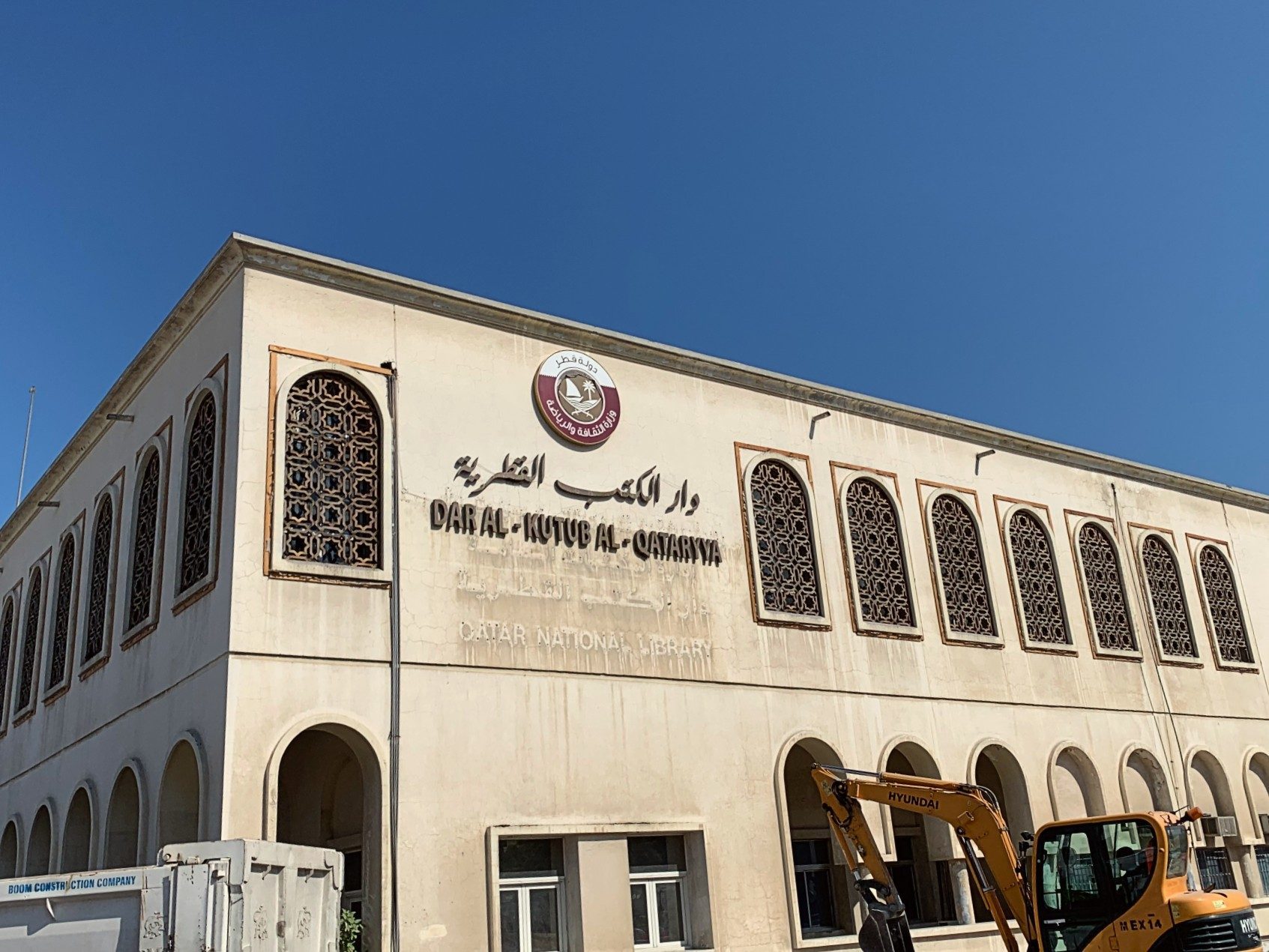Doha News goes to Dar Al Kutub Al Qatariyya, a birthplace for the country’s academic development and achievements.
Way before e-books and easily accessible magazines, people had to drive miles for a literary experience.
But the long drives were worth the destination – Dar Al Kutub Al Qatariyya, a hidden gem that spearheaded Qatar’s academic developments.

Established in 1962, Dar Al Kutub, or the Qatari National Library, was not only the first public library in the country, but the whole of the Gulf region. It was founded by Sheikh Ali bin Abdullah Al Thani, the fourth ruler of Qatar.
During his time, the country witnessed a series of developments in various sectors. Al Thani was behind Qatar’s airport, water supply networks, first desalination station, and also provided houses with free water, among several other major achievements.
The library was a merged together the Dar Al M’earf, or Public Knowledge Library which was under the Ministry of Education, and the Doha Public Library, which was established in 1956.
Dar Al Kutub started as an inspiration in the mid 1950’s by Dar Al Kutub Al Masriya in Egypt – the first public library in the MENA region – and later became a key landmark in the country.

“Despite the presence of Dar Al M’earf, the community’s needs were bigger. So they thought of establishing it as the National Library of the country,” said Abeer Al Kuwari, Director of Research and Learning Services at Qatar National Library (QNL).
According to Al Kuwari, Dar Al Kutub was only granted the Legal Depository Rights to preserve the local national publications and later started acting as the National Library for Qatar.
Read also: Curtains close: Back in time at Qatar’s first-ever cinema
The entity played a key role in Qatar’s development, especially when the country began establishing its economy and the Ministry of Education, before later becoming an incubator of knowledge, containing first editions of Arabic publications and various rare books.
Since its establishment, the Dar Al Kutub has even established several other libraries around the country, including in Al Khor, Al Shamal, Al Wakra, and Al Rayyan. It also served as a literary hub, where visitors would travel distances to borrow books.

Sharing an anecdote about the upbringing of thousands that grew up in Qatar, Al Kuwari said many used to drive from places as far as Al Khor to Doha City in order to access publications available at the library.
“An old guy told me that he would come everyday to the library to read newspapers and books. He said that if they decide to close the library and demolish it, he would stand at its door to prevent it from happening,” she said.
According to Al Kuwari’s research, Qatar had more than 500 libraries, including a national library, and 24 public libraries by 1992.
The five-decade old building was closed earlier this year in January for renovation and is in the process of being preserved as a cultural site for the people of Qatar.

Despite serving as the blueprint of educational and academic development in the country, it has remained a hidden gem, especially for younger generations.
But for Al Kuwari, her interest was triggered in 2014 when she became involved with QNL.
“There’s little written about Dar Al Kutub and all the information I got was based on primary resources and several interviews,” she said, reflecting on her research journey into the country’s library.
“Growing up I knew nothing about it,” she added.
During her research, Al Kuwari found that Dar Al Kutub was not just a destination for bookworms, but it also served as the main resource of knowledge and soon became a connection to home for many expats living in Qatar.

“For example, the Lebanese in Qatar knew more about what’s happening in Lebanon than the people living in Lebanon, because of the periodicals and newspapers and the magazines that were available,” said Al Kuwari.
When it was first established, the building was only one level and not the two-storey building that we now see in Grand Hamad Street. According to Al Kuwari, the second level was only built in 1982 as an expansion, containing a conservation lab, binding section for periodicals, and it was an entire, up-to-date library.
“Everything was to the highest standards,” she said.
Read also: Skating down memory lane at the now-gone City Center ice rink
Due to its age and the lack of awareness about its cultural significance, the library is commonly yet falsely believed to be void of academic achievements. This is a misconception Al Kuwari is striving to scrap.

“We didn’t start when the Qatar National Library project was announced. The history and legacy of libraries started way back…this is something that we need to capture as Qataris and we need to be proud of,” she said.
Though the modern, state-of-the-art QNL now serving as the icon of publications in the country, Dar Al Kutub remains as the most significant and iconic library.
According to Al Kuwari, Dar Al Kutub is expected to make a comeback ahead of the 2022 World Cup, allowing visitors from around the world access into Qatar’s history.
But until it opens again, Al Kuwari thinks there should still be more education on Dar Al Kutb, especially for the future generations.
“It’s very important that we capture this development for the younger generations to show them the significance of this landmark.”
Follow Doha News on Twitter, Instagram, Facebook and Youtube







